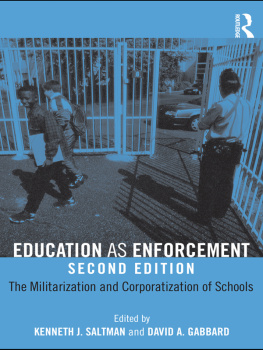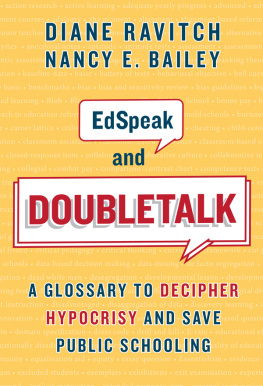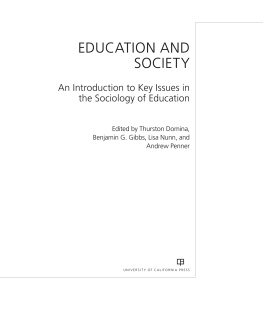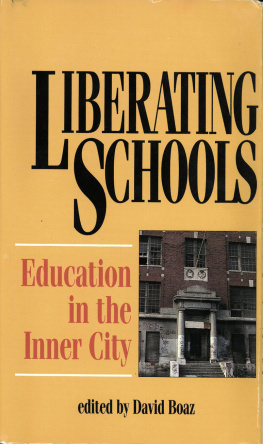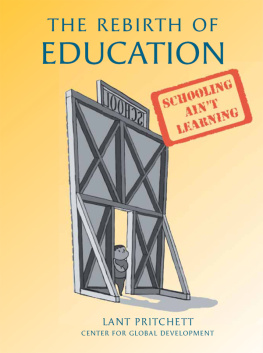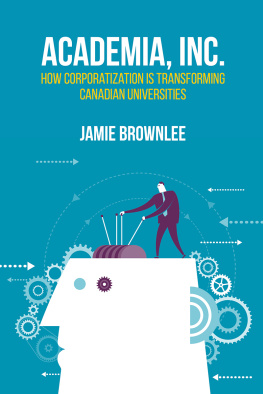Education as Enforcement
The first volume to focus on the intersections of militarization, corporations, and education, Education as Enforcement exposed the many ways in which schooling has become a means through which the expansion of global corporate power is enforced. Since publication of the first edition, these trends have increased to disturbing levels as a result of the extensive militarization of civil society, the implosion of the neoconservative movement, and the financial meltdown that radically called into question the basic assumptions undergirding neoliberal ideology. An understanding of the enforcement of these corporate economic imperatives remains essential to a critical discussion of related militarized trends in schools, whether through accountability and standards, school security, or other discipline-based reforms.
Education as Enforcement, Second Edition elaborates upon the central arguments of the first edition and updates readers on how recent events have reinforced their continued original relevance. In addition to substantive updates to several original chapters, this second edition includes a new foreword by Henry Giroux, a new introduction, and four new chapters that reveal the most contemporary expressions of the militarization and corporatization of education. New topics covered in this collection include zero-tolerance, foreign and second language instruction in the post-9/11 context, the rise of single-sex classrooms, and the intersection of the militarization and corporatization of schools under the Obama administration.
Kenneth J. Saltman is Professor of Educational Policy Studies and Research at DePaul University.
David A. Gabbard is Professor in the Department of Curriculum and Instruction at East Carolina University.
Education as Enforcement
The Militarization and Corporatization of Schools
Second Edition
Edited by
Kenneth J. Saltman
David A. Gabbard

NEW YORK AND LONDON
First edition published 2003
by Routledge
270 Madison Avenue, New York, NY 10016
This edition published 2011
by Routledge
270 Madison Avenue, New York, NY 10016
Simultaneously published in the UK
by Routledge
2 Park Square, Milton Park, Abingdon, Oxon OX14 4RN
Routledge is an imprint of the Taylor & Francis Group, an informa business
This edition published in the Taylor & Francis e-Library, 2010.
To purchase your own copy of this or any of Taylor & Francis or Routledges collection of thousands of eBooks please go to www.eBookstore.tandf.co.uk.
2003, 2011 Taylor & Francis
The right of Kenneth J. Saltman and David A. Gabbard to be identified
as editors of this work has been asserted by them in accordance with
sections 77 and 78 of the Copyright, Designs and Patents Act 1988.
All rights reserved. No part of this book may be reprinted or reproduced or utilised in any
form or by any electronic, mechanical, or other means, now known or hereafter invented,
including photocopying and recording, or in any information storage or retrieval system,
without permission in writing from the publishers.
Trademark Notice: Product or corporate names may be trademarks or registered trademarks, and are used only for identification and explanation without intent to infringe.
Library of Congress Cataloging-in-Publication Data
Education as enforcement : the militarization and corporatization of schools /
edited by Kenneth J. Saltman & David A. Gabbard.
p. cm.
1. Educational sociologyUnited States. 2. Education and stateUnited States.
3. CorporatizationUnited States. 4. Commercialism in schoolsUnited States.
5. MilitarismUnited States. I. Saltman, Kenneth J., 1969 II. Gabbard, David.
LC191.4.E36 2010
306.43dc22
2010023374
ISBN 0-203-84322-3 Master e-book ISBN
ISBN 13: (hbk) 9780415875998
ISBN 13: (pbk) 9780415876018
ISBN 13: (ebk) 9780203843222
CONTENTS
Henry A. Giroux
|
Kenneth J. Saltman
|
Kenneth J. SaltmanandDavid A. Gabbard
|
Noam Chomsky
|
Kenneth J. SaltmanandRobin Truth Goodman
|
David A. Gabbard
|
Pauline Lipman
|
Pepi Leistyna
|
Christopher G. Robbins
|
Enora R. Brown
|
Four Arrows
|
Jason Goulah
|
Marvin J. BerlowitzandNathan A. Long
|
Robin Truth Goodman
|
Haggith Gor
|
Julie Webber
|
Sheila Landers Macrine
|
Ron Scapp
|
Sandra Jackson
|
Alex Means
|
Kevin D. Vinson,E. Wayne Ross, andJohn F. Welsh
|
Michael W. Apple
|
Foreword
GOVERNING THROUGH CRIME AND THE PEDAGOGY OF PUNISHMENT
Henry A. Giroux
Hannah Arendt once wrote that
Education is the point at which we decide whether we love the world enough to assume responsibility for it and by the same token save it from ruin. [It is also] where we decide whether we love our children enough not to expel them from our world and leave them to their own devices, nor to strike from their hands their chance of undertaking something new, something unforeseen by us, but to prepare them in advance for the task of renewing a common world.
Arendt recognized that education was an important site of struggle, but she never could have anticipated that it would, instead, become an institution for punishing those very young people whose fate, if not the fate of democracy itself, it was once willing to assume responsibility for. Nor could she have imagined how a creeping militarization and pedagogy of punishment would eventually permeate all aspects of daily life, especially public education.
In a society that has increasingly separated economics from ethics and allows the market to drive politics, it is not surprising that with the destruction of the social state the only political model left for shaping society largely comes from the merging of corporations and prisons. As the social contract is annihilated through the growing commodification and militarization of American society, those institutions that were once designated as central to reproducing civic values, the public good, and democracy itself are now seen as the weak link in the emergence of a new kind of sovereignty in which the logic of privatization is coupled with the heavy hand of a state that increasingly trades in punishment, surveillance, control, and containment. Nowhere is this more obvious than in the transformation of the public school into a breeding ground for producing consumers, on the one hand, and for imposing harsh disciplinary practices on those students marginalized by race and class, on the other. In this instance, the school as a public good has been transformed into either a training ground for a consumer society or a pipeline for channeling disposable populations into the grim confines of the criminal justice system. The principal premise behind

